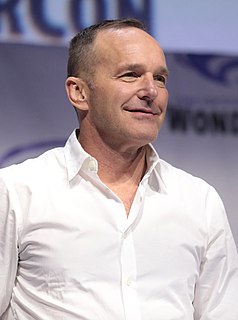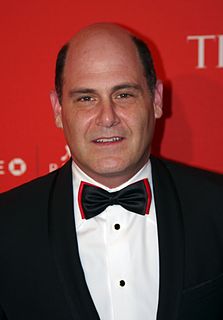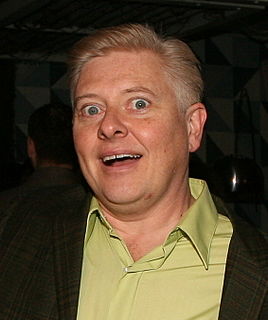A Quote by Clark Gregg
There's something about the superheroes and the idea behind their relationship with humans, whether it's a metaphor for the better part of ourselves, or the more flawed part of ourselves. So it seems to really be our own pop-culture version of Greek mythology.
Related Quotes
But you know what, honestly? I'm not that interested in advertising. I think it's a great way... It's such a huge part of our culture. It's like saying, "Are you interested in hair?" It's such a part of our life, and it's such a reflection of how we feel about ourselves, and what we're interested in, and what we want to be.
We're on an indie label. We don't have mass marketing behind us, and we don't have big budgets. We do our own thing. We do exactly what we want to do. We produce our own music. We write ourselves. We record ourselves. We mix ourselves. The artwork is done by my brother. That's not selling out. We're doing exactly what we want to do.
Believe it or not, entertainment is part of our American diplomacy, it is part of what makes us exceptional, part of what makes us such a world power. Hundreds of millions of people may never set foot in the United States, but thanks to you, they've experienced a small part of what makes our country special. They've learned something about our values. We have shaped a world culture through you...in a way that has made the world better.
Although our moral conscience is a part of our consciousness, we do not feel ourselves on an equality with it. In this voice which makes itself heard only to give us orders and establish prohibitions, we cannot recognize our own voices; the very tone in which it speaks to us warns us that it expresses something within us that is not of ourselves.
But how can we love someone if we don't like him? Easy-we do it to ourselves all the time. We don't always have tender, comfortable feelings about ourselves; sometimes we feel foolish, stupid, asinine, or wicked. But we always love ourselves: we always seek our own good. Indeed, we feel dislike toward ourselves, we berate ourselves, precisely because we love ourselves; because we care about our good, we are impatient with our bad.
Part of our identity is the idea that racism is still there and that we are vulnerable to it. So, the question is, 'How vulnerable?' In other words, is it really a problem for us, or is it just a small thing. How do you evaluate racism in America on a scale of 1 to 10? My suspicion is that most blacks overrate it a bit. Not to say it's not there, but we overrate it because this masking is part of our relationship to the larger society. This is a way we keep whites on the hook. We keep them obligated, and we keep ourselves entitled. There's an incentive, you see, to inflate it a little bit.




































